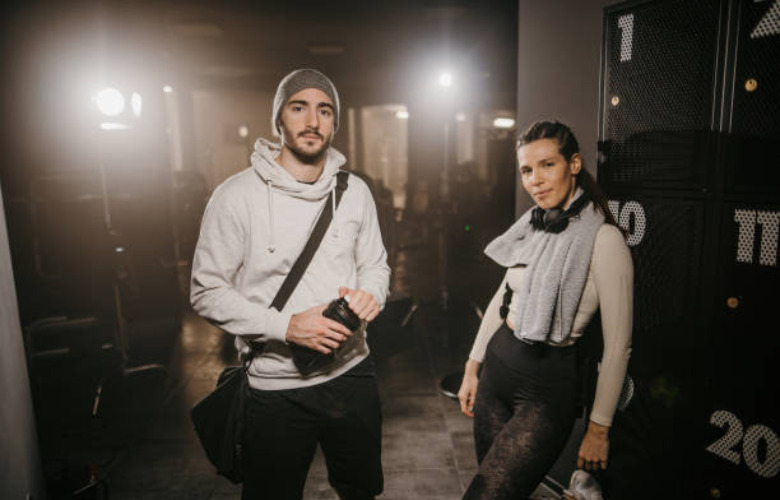
As I was recently reading a book, they mentioned a lyric from a song by the Smiths. The lyric goes ‘I wear black on the outside/ ‘Cause black is how I feel on the inside’. It instantly struck me. With all the recent discussions and invitations on insight to mental health in the theatrical and entertainment industry, I pondered a question:
If we weren’t constantly wearing black on the outside, would we still feel black on the inside?
For as long as anyone can remember, everyone behind the scenes in every form of entertainment has been told that the standard uniform is all black. Black work trousers, black steel toed shoes, black tanks and tees, right down to a black face mask when shows were just starting to come back after restrictions were lifted. Everyone who works in this industry understands why we wear black (even on Wednesdays). This is to help those of us in backstage and behind the scenes roles to simply blend in better when the backstage goes dark. We are the ninjas no one is ever supposed to see. We work in the cover of darkness to ensure everything goes smoothly. If you ever see us on stage, something has gone terribly wrong.
While this aspect of why we wear our different shades of black is understood, does this make it simply not to be questioned?
Recently, someone has questioned it. Margot Robbie during the production of her new film Barbie demanded that once a week, everyone wear pink. Her co-star Ryan Gosling even said:
“What was really special was just how excited the male crew members were. At the end of the film, they all got together and, with their own money, made pink crew shirts with rainbow fringe.”
Adhering to wearing something other than black is, in theory, easier to do on a film set rather than a live show for multiple reasons. You can edit people out a film, you can do retakes, you can say they were an extra for the shot. In a live performance, you can’t do any of those. The audience sees everything. But what about in less formal settings outside of traditional theatre? At concerts, festivals, even smaller gigs such as comedy nights, it’s still widely accepted that black is normal even though there isn’t much of a backstage, and you are widely seen by the audience in those settings. At a festival I had recently worked with, my technical manager came into work one day wearing his normal everyday clothes and I almost didn’t recognise him as he wasn’t in working blacks. In fact, he was in a colourful Hawaiian style shirt with tan shorts, easily mistaken for one of the many people at the festival on vacation. He said to me,
“Eventually we have to wear what makes us happy.”
If those of us in backstage and non-customer facing roles started to wear what we felt happy in, would we eventually be happier in our stressful roles in this industry?


Janine has always been a part of music and performing. The first show that inspired her to go into theatre was the Velveteen Rabbit which she saw as a child, and Drew works to keep that magic alive in her work. When Drew was accepted into an internship program for audio engineering at a recording studio, she jumped at the opportunity. That was at the start of 2020, and so much has happened since then, both in her career and in the world. Since then, Drew has taken several opportunities to work at recording studios, concerts, festivals, and even large theatres while spending some time on tour. Drew's favorite by far though, has been the chance to work on Broadways and West End shows, as this was a dream come true. Drew is honoured to get to share these experiences from being inside the entertainment industry.
Read Full Profile© 2021 TheatreArtLife. All rights reserved.

Thank you so much for reading, but you have now reached your free article limit for this month.
Our contributors are currently writing more articles for you to enjoy.
To keep reading, all you have to do is become a subscriber and then you can read unlimited articles anytime.
Your investment will help us continue to ignite connections across the globe in live entertainment and build this community for industry professionals.